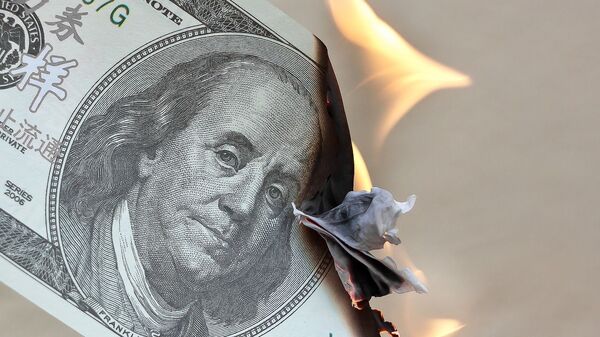Iranian Foreign Minister Javad Zarif has praised the country's de-dollarisation efforts, arguing that it allowed Tehran to ease the pressure of American sanctions. The refusal to use dollars in international transactions was in large part achieved via the broad use of "barter", the minister added.
"One of the issues that reduces the pressure of sanctions is the elimination of the dollar from transactions, which we have been pursuing through the use of the barter system and many countries have joined in", Zarif said.
Zarif went on to lash out at the US for waging an "all-out war" against Iran by trying to depict the country as a "security threat" to the world and pressuring the Islamic Republic's allies. The minister argued that Washington tries to use its influence at the UN Security Council to "harm" the Iran because the US sees it as an "emerging power".
US Withdrawal From JCPOA
Tehran faced US economic sanctions pressure after Washington withdrew from Iran nuclear deal (also known as the JCPOA) in 2018. Citing allegations that Tehran was still working on developing nuclear weapons, something repeatedly dismissed by both Iran and International Atomic Energy Agency inspectors, the US ditched the multilateral deal and threatened to impose sanctions against other participants, if they continued doing business with the Islamic Republic.
Washington imposed sanctions on Iran's oil trade, one of its main sources of revenue, and the country's banks, resulting in their disconnection from the global SWIFT system. In response, Iran promised to completely stop financial operations using the American currency. According to allegations made by US officials, Tehran used gold as a payment method, when it delivered fuel and resources for refineries to Venezuela via tankers at the end of April.




